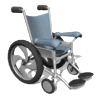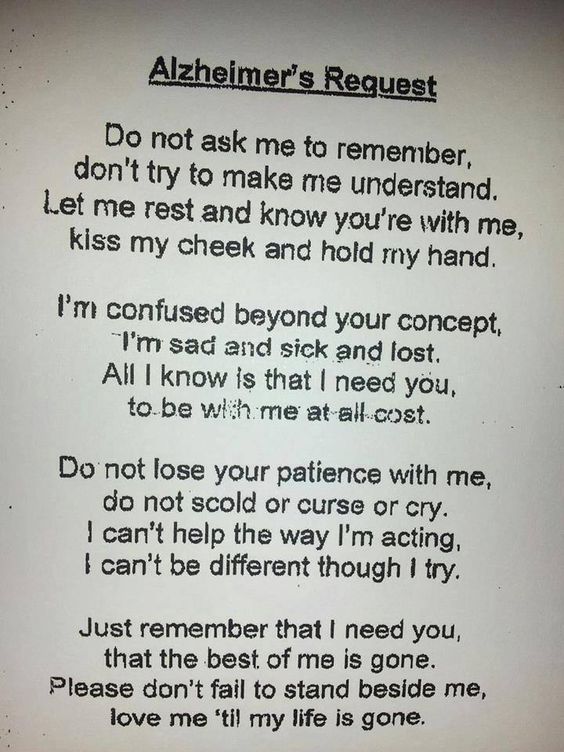 Alzheimer's Warning Signs
Alzheimer's Warning Signs Alzheimer's Warning Signs
Alzheimer's Warning Signs |
Forgetting the date or losing keys may not indicate the onset of Alzheimer's. But if these common traits worsen, they may form the disease's recognizable pattern. Alzheimer's is a brain disease in which groups of nerve endings in the outer layer of the brain (the cortex) degenerate and disrupt the passage of electrochemical signals between the cells. Changes also occur in the nerve cells of the cortex, leading to an accumulation of abnormal fibers called neurofibrillary tangles. Alzheimer's disease causes loss of memory and serious mental deterioration. It is estimated to affect 4 million middle-aged and older Americans: 10 percent of the population older than 65, and 47 percent of the population older than 85. 1. Early Stage
From 2 to 4 years2. Middle Stage
From 2 to 8 years3. Late Stage
From 1 to 3 yearsRecent-memory loss begins to affect job performance Increasing memory loss & confusion Loses weight Confusion about places Problems recognizing close friends Can't recognize family members or image of self in mirror Loses initiative Repetitive statements Unable to care for self Mood/personality changes, avoids people Occasional muscle twitches or jerking Can't communicate Takes longer with routine chores Motor problems May put everything in mouth, touch everything Makes bad decisions Problems with reading, writing & numbers Can't control bowels, bladder Trouble with handling money, paying bills Difficulty in thinking logically May have seizures, difficulty with swallowing, skin infections Can't find right words May be suspicious, irritable, fidgety, teary Loss of impulse control, refusal to bathe, has trouble dressing May see or hear things that are not there Needs supervision What caregivers can do
for Early StageWhat caregivers can do
for Middle StageWhat caregivers can do
for Late StageMake sure you have the right diagnosis. Many conditions can affect memory. Label drawers, closets, rooms and appliances as well as photos of family, friends and pets. Communicate often with patients who are institutionalized. Avoid correcting confused or faulty memories. Maintain familiar surroundings. Try to communicate in a different way, through exchange of old photos or through music. Create a simple "orientation area" at home in which you keep essential items like keys, glasses, clock and calendar. Make sure hallways and bathrooms are well lighted at night. Install support rails and slip-proof surfaces in bath. Label hot-water and cold-water faucet's. Minimize unnecessary blood tests and other painful procedures. Encourage the patient to keep in touch with friends, listen to music, exercise. Take away car keys. You may not want to treat medical problems such as pneumonia and hip fractures as aggressively as you would for a health person. Monitor driving habits. Install door locks from the outside, or rig the doors with alarms. Plan for the future; decide when financial responsibilities should be turned over; set treatment options; designate a health-care proxy. Lay out articles of clothing one at a time. Register with Safe Return, a program for reuniting lost or wandering Alzheimer's patients. Brush your teeth at the same time to show how it's done. Start looking into residential care facilities, if that's what you want.

|
Home |
|
Alzheimers Information |

Important Disclaimer: Answers and comments provided above are general information, and are not intended to substitute for informed professional medical, psychiatric, psychological, tax, legal, investment, accounting, governmental, or other professional advice. We do not endorse, and expressly disclaims liability for any product, manufacturer, distributor, service, health plan, or service provider mentioned or any opinion expressed in the website. Replies, comments, or information gathered on Barricks.com website may not be accurate but are intended to be helpful.